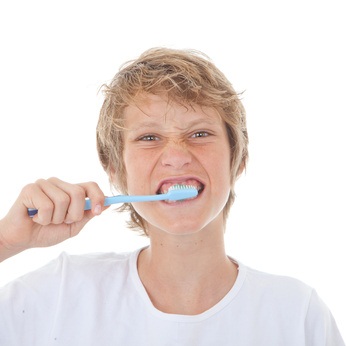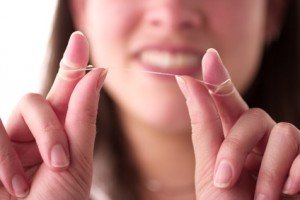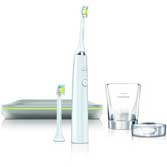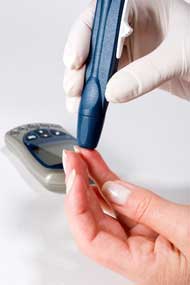As a clinician that places and restores dental implants, the Biohorizon internal tapered dental implant is my favorite dental implant to place in the right situation. Each dental implant site requires careful evaluation and can present with difficult obstacles for success. Therefore, clinicians need to be versatile in the type of implant they select because certain dental implants will perform better in specific situations. With the hundreds of different types of dental implants out there, choices can be daunting for a clinician. There are several factors as to why I chose Biohorizon dental implants in the right situation. The biggest benefit I see from Biohorizon implants is the Laser-Lok microchannels. In my opinion, the tissue response and attachment that Biohorizon provides is most similar to a natural tooth compared to all the dental implants I have come across. One of my main goals as a Implantologist is to replicate nature and Biohorizon helps achieve those aesthetics. Biohorizon internal tapered dental implants carry a lifetime warranty . I place hundreds of dental implants a year, aside from research and studies on the Biohorizon implants, the warranty gives me confidence that the company believes and stands by its product. The final factor that causes me to lean heavy towards this dental implant is the ease of placement and restoration. Surgically it is a very simple system with very high success rates nationwide. Prosthetically, Biohorizon is a well know dental implant within the laboratory circles that the lab technicians are familiar.]]>
osteoporosis and osteopenia often ask if they are candidates for dental implants. My short answer is dental implants result in a better quality of life for osteoporotic women. There are studies that show women  with osteoporosis and dental implants have higher overall satisfaction with their lives as opposed to living with false teeth (dentures) or no restorations at all. The dentist placing implants needs to take into consideration the simple fact studies show overall satisfaction with dental implants in osteoporotic women and then weigh that against the risk indicators that could affect the long term success of dental implant restorations. The causality between oral bone loss and systemic bone loss (osteoporosis or osteopenia) has not be proven, but there is evidence that a relationship exists between the two diseases. Undoubtedly, dental implants can be successful initially in the dental patient with osteoporosis, its the long term success that is uncertain.
In our practice we carefully evaluate the osteoporotic patient and determine the likelihood they will have a high percentage of success with initial dental implant placement and restoration. We do this with an extensive screening of the patients medical history and a CT scan to measure the quality and amount of bone in the oral cavity. At Frangella Dental, 98% early surgical success is what we strive for with each patient. Because the CT scan can evaluate the quality and amount of bone, we can categorize the surgical site into a specific type of bone. Through extensive clinical studies from the past, we can use this input and inform the patient with a range in percentage of early dental implant success before we begin the procedure.
When dental implants are successful with our patients, we then give strict guidance on the proper oral hygiene maintenance. With close supervision through periodic dental visits and proper oral hygiene maintenance, our osteoporotic patients with dental implants have experienced overall satisfaction and achieved long term success. In our practice, the overall satisfaction of osteoporotic patients with dental implants far outweighs the potential risks.]]>
with osteoporosis and dental implants have higher overall satisfaction with their lives as opposed to living with false teeth (dentures) or no restorations at all. The dentist placing implants needs to take into consideration the simple fact studies show overall satisfaction with dental implants in osteoporotic women and then weigh that against the risk indicators that could affect the long term success of dental implant restorations. The causality between oral bone loss and systemic bone loss (osteoporosis or osteopenia) has not be proven, but there is evidence that a relationship exists between the two diseases. Undoubtedly, dental implants can be successful initially in the dental patient with osteoporosis, its the long term success that is uncertain.
In our practice we carefully evaluate the osteoporotic patient and determine the likelihood they will have a high percentage of success with initial dental implant placement and restoration. We do this with an extensive screening of the patients medical history and a CT scan to measure the quality and amount of bone in the oral cavity. At Frangella Dental, 98% early surgical success is what we strive for with each patient. Because the CT scan can evaluate the quality and amount of bone, we can categorize the surgical site into a specific type of bone. Through extensive clinical studies from the past, we can use this input and inform the patient with a range in percentage of early dental implant success before we begin the procedure.
When dental implants are successful with our patients, we then give strict guidance on the proper oral hygiene maintenance. With close supervision through periodic dental visits and proper oral hygiene maintenance, our osteoporotic patients with dental implants have experienced overall satisfaction and achieved long term success. In our practice, the overall satisfaction of osteoporotic patients with dental implants far outweighs the potential risks.]]>
Lately, I have been receiving a lot of questions from my patients regarding mini dental implants and their uses in dentistry today. In our practice, we rarely use mini dental implants for reasons my colleague and brother-in-law Dr. Brian Davis describes in his recently published article. This article, “The Truth About Mini Implants”, is about the uses of mini dental implants and some misconceptions that have arisen. Please enjoy the article and pass on to anyone that may have questions about the latest hot topic in implant dentistry! ]]>
In the past we have discussed how to teach your children and yourself  to be a great patient, and how to maintain a healthy oral environment. We’ve shared our insights from prenatal to postnatal as well. However, one very important group that seldom is addressed is the Adolescent group. Dentally, this is one of the most important age groups. These budding individuals are past the age where their parents can help them brush, but not mature enough to keep their mouths as clean as they should. A lot of damage can be done in those teen years that can set your child up for a lifetime of dental aggravation. Today’s post is about how to keep your teen’s mouth healthy.
to be a great patient, and how to maintain a healthy oral environment. We’ve shared our insights from prenatal to postnatal as well. However, one very important group that seldom is addressed is the Adolescent group. Dentally, this is one of the most important age groups. These budding individuals are past the age where their parents can help them brush, but not mature enough to keep their mouths as clean as they should. A lot of damage can be done in those teen years that can set your child up for a lifetime of dental aggravation. Today’s post is about how to keep your teen’s mouth healthy.
- Keep the fluoride coming, getting your teen to brush well and brush often is a hard job in itself, asking them to floss and rinse afterwards is even harder. I recommend buying a toothpaste that includes fluoride to help keep their enamel strong and healthy, and if you can try and have them rinse with a fluoride rinse like ACT before bed, even better. You can check out some ACT products here.
- Try and make sure that your child is brushing at least twice a day. As much as they’ll be annoyed by your hounding them, they’ll be even more annoyed when they have to sit through a filling or two.
- With the surge in popularity of energy and sports drinks kids are really drawn to these types of beverages. Limit your teen’s consumption as much as you can. Always stick to sugar free, and be aware of what your teen is consuming. Some sports drinks, although sugar free, are very acidic and are unhealthy for dental enamel.
- During the teenage years we often see many kids with braces. It is incredibly important to keep your teens mouth clean during this time. There are plenty of tools made to help keep brackets and orthodontic appliances clean. Ask your dentist or orthodontist which tools are best for your teens mouth and have them show your child (and you) how to use them.
- Candy and carbohydrate laden snack foods are definite cavity causers. If you can’t avoid your child eating these types of foods then at least limit the amount of times during the day that they do. One sitting of eating candy and snacks followed by tooth brushing and flossing can reduce the risk of cavities as opposed to short periods of snacking throughout the day.
- Teens can be very insecure, with all sorts of new social situations some kids are more concerned than ever about their appearances. Help boost your kids confidence by giving them the tools to keep their smile healthy and beautiful. If they are looking for inspiration, remind them that by not taking care of their mouths there are other risks besides cavities, such as bad breath, broken and discolored teeth.
Frangella Dental
Offering advanced techniques in Cosmetic and General Dentistry in New York City.
200 W. 57th Street, Suite 1405
New York, NY 10019
(212) 245-2888
care@drfrangella.com




